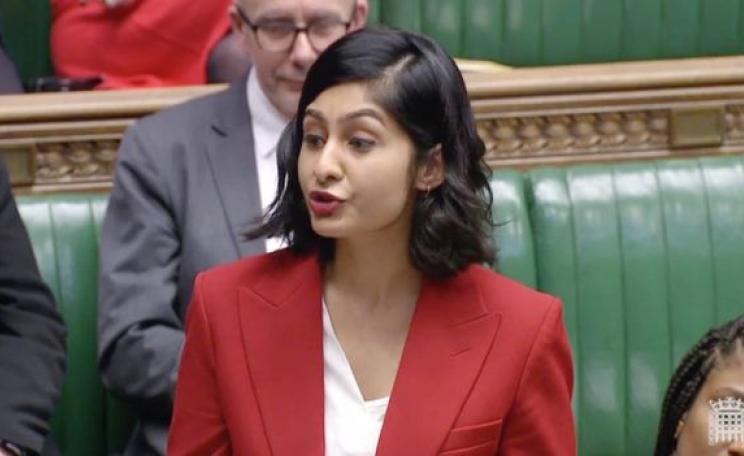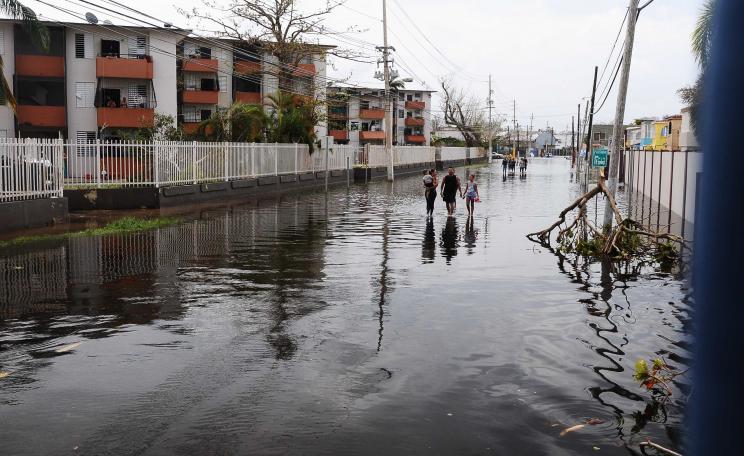The only target that should be set, as was set in the Green Party manifesto in December, is net zero-carbon by 2030. That’s what the Intergovernmental Panel on Climate Change tells us we need to do.
The House of Lords yesterday debated part of the government’s programme listed in the Queen’s Speech last month, focusing particularly on the environment and climate emergency elements.
In my short five minutes, I chose to focus on a plea to the members of the House to follow the model of Sir David Attenborough in listening to the young climate strikers in their communities and acting on the emergency.
Had I had another five minutes, I would have made a list of specific questions for the government about the lacks and limitations of what they’ve offered so far. A blog that concluded with faint praise that it “made some of the right noises”, pretty well sums it up.
There are many key issues that remain open.
“Non-regression”
A great mouthful of a word for the principle that existing standards mandated by the EU should not be allowed to slide after we Brexit. Think chlorinated chicken and maintaining pesticide bans.
But we need to go even further, to ensure that if the EU in the future improves standards, we mirror that improvement. Why should we have lower environmental standards (and workers’ rights standards) than our neighbours?
A real Office for Environmental Protection
The new replacement for EU oversight of delivering on the environment is to be called the Office for Environmental Protection.
It needs to be both genuinely independent, and fully legally powered up and financially resourced. The emasculation of Natural England on both fronts illustrates the risk of failure on both fronts.
Biodiversity ‘net gain’
The idea that developers can go ahead with destructive projects provided they can claim “net gain” in biodiversity is a disturbing one.
Campaigners say it needs to be stronger, but in this massively nature-depleted country (on a global scale we’re among the worst), we can’t afford to lose any more of our precious, scarce natural world.
Air pollution
Action is promised, but has tHer Majesty’s Government looked at Green peer Jenny Jones’ Clean Air Act and it can work with us to put its provisions into law? A message for Boris Johnson - it’s “oven-ready”, as you like to say.
Bottle deposit scheme
A small cheer - after Michael Gove expressed his support for the idea multiple times, the government has finally committed to actually introduce one in England (Scotland’s will start in 2021). But the crucial question is, which bottles?
The only target that should be set, as was set in the Green Party manifesto in December, is net zero-carbon by 2030. That’s what the Intergovernmental Panel on Climate Change tells us we need to do.
Campaigners are calling for an “all-in” scheme for all sizes of bottles, as in Scotland.
The Campaign for the Protection of Rural England’s 2019 Green Clean found more than a quarter of the plastic bottles it collected were larger than the 500ml size that some proposals for the deposit scheme are restricted to.
A national tree strategy
This needs to be statutory, and ensure the right tree is planted in the right place. Baroness Young of Old Scone, chair of the Woodland Trust spelt out the issues beautifully in her contribution yesterday. Speaking as a resident of Sheffield, this is an issue very close to my own heart.
Live animal exports
The government is now saying they will “end excessively long journeys of animals going for slaughter”. This seems to be a significant watering down from their previous commitments to “end live animal exports”. Will the Government stick with the latter?
The fish in the sea
The Fisheries Bill should include a legal commitment to set fishing limits below scientifically defined sustainable levels. And to highly protect at least 50% of all British waters.
World leading
These are some of the details, but there’s one big underlying question that shouldn’t be forgotten. In the House of Lords and elsewhere we hear the government continually crowing about being “world-leading” in setting a net zero-carbon target date of 2050.
That’s a claim that utterly fails to stack up in its own terms: just check the list of countries far ahead of us or level with us in their targets.
But it is also both a licence to do nothing. None of the current ministers will be in power in three decades to be checked against delivery - and it leaves the crisis to a future where it has runaway beyond point of remedy.
And it ignores the fact that the government is not even on target to meet the lower, supposedly legally-binding, targets of the 2008 Climate Change Act.
The only target that should be set, as was set in the Green Party manifesto in December, is net zero-carbon by 2030. That’s what the Intergovernmental Panel on Climate Change tells us we need to do.
Getting there requires a massive Green New Deal, to turn around our society - and tackle the social crisis of poverty, inequality, ill-health and insecurity that is blighting all of our lives.
This Author
Natalie Bennett is a member of the House of Lords and a member of the Green Party.






